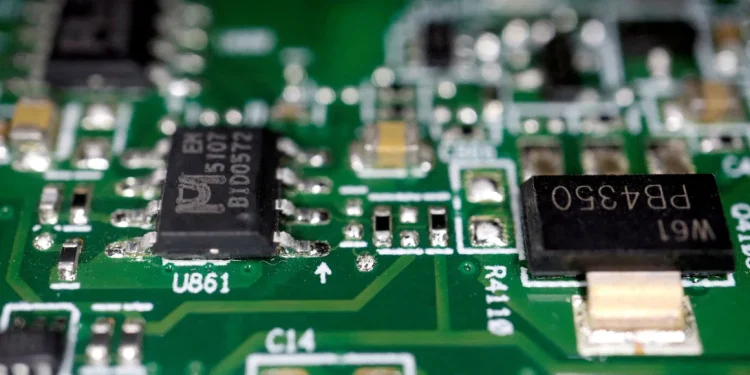In a surprising development, China has reportedly rolled back its 125% retaliatory tariffs on some US-made semiconductors. The decision, which has not been publicly confirmed by Chinese authorities, was revealed by three import agencies in Shenzhen, a key technology hub. According to their reports, certain exemptions on integrated circuits, including microchips, were applied starting Thursday, April 24.
The move comes in the wake of China’s earlier tariff increases on US goods, following US President Donald Trump’s hike of tariffs on Chinese imports. On April 12, China had escalated tariffs to 125% on all US-made products in retaliation for Trump’s own tariff measures. However, these exemptions signal that China’s tech sector, reliant on high-quality semiconductor imports, is feeling the strain of the trade war.
China has made significant progress in developing its own semiconductor industry, but it remains highly dependent on imports from the US, Taiwan, South Korea, Japan, and the Netherlands. In 2024, China imported $11.7 billion worth of semiconductors from the US alone. This dependency, particularly in the logic chip sector (which controls data flow), makes the exemptions a critical move for Beijing, especially as it attempts to navigate the ongoing trade conflict with Washington.
Industry experts, including Duncan Clark from the BDA advisory firm, noted that the exemptions underscore China’s lack of “autonomy in chips.” Despite ambitious goals for self-sufficiency in semiconductors, Clark emphasized that China will take years to achieve full independence in this crucial field.
The exemption applies to integrated circuits used in logic chips, which process and control data. However, memory chips, which store and retrieve data, remain subject to the reciprocal tariffs. South Korea’s Samsung and SK Hynix dominate the memory chip market, leaving China with fewer options for alternatives.
In addition to semiconductors, China has also granted tariff exemptions for certain aviation components, including engines and landing gears, a move welcomed by companies like French engine maker Safran. Safran’s CEO Olivier Andries confirmed that China had removed taxes on key components for the C919, China’s homegrown passenger aircraft.
The revelation of the exemptions has caused significant ripple effects in the industry. Import agencies in Shenzhen have been notifying clients of the new policy, confirming that semiconductors from the US now face zero tariffs under eight specific tariff codes. However, no official statement has been issued by China’s General Administration of Customs or the Ministry of Commerce.
This move could have wide-reaching implications, benefiting American chipmakers such as Intel, Texas Instruments, and Global Foundries, who had been directly impacted by the previous tariffs. At the same time, it suggests that China is actively working to soften the impact of the trade war on its critical tech industry, which has been facing increasing pressure from US sanctions and tariffs.
The exemption also follows a pattern of other recent tariff adjustments, such as the removal of tariffs on US-designed chips manufactured outside the US. For example, Nvidia’s chips, produced in Taiwan by TSMC, were no longer subject to China’s steep tariffs, reflecting Beijing’s efforts to protect vital industries.
Despite this seemingly conciliatory move, tensions between the US and China remain high. The two nations continue to clash over tariffs, intellectual property, and market access, with no clear resolution in sight. As the trade war unfolds, these exemptions could be part of a broader strategy by China to mitigate the economic impacts while maintaining its stance on key trade issues.











